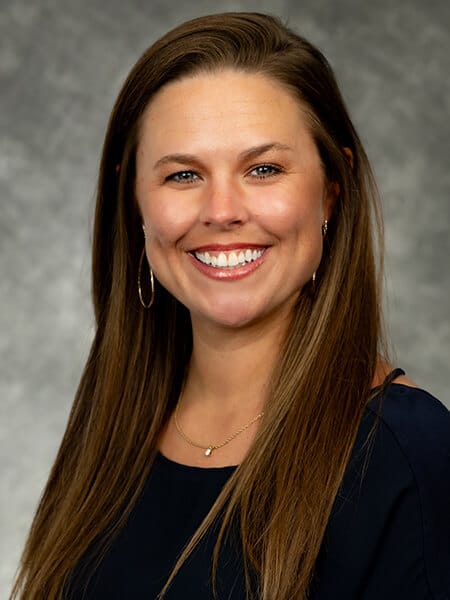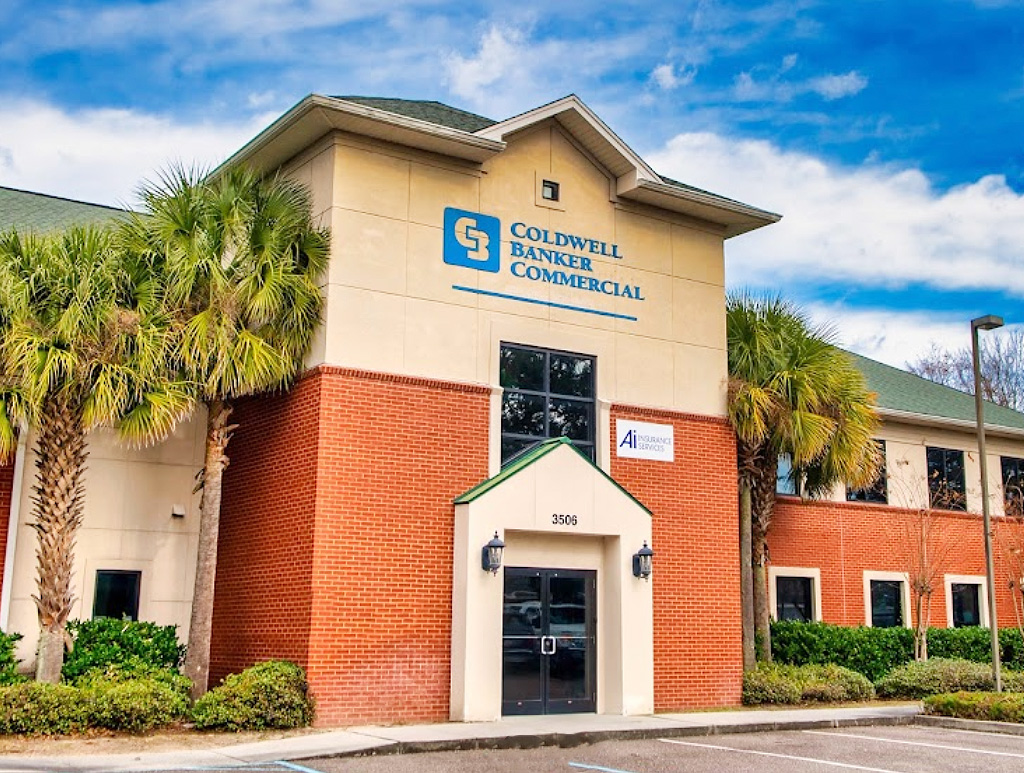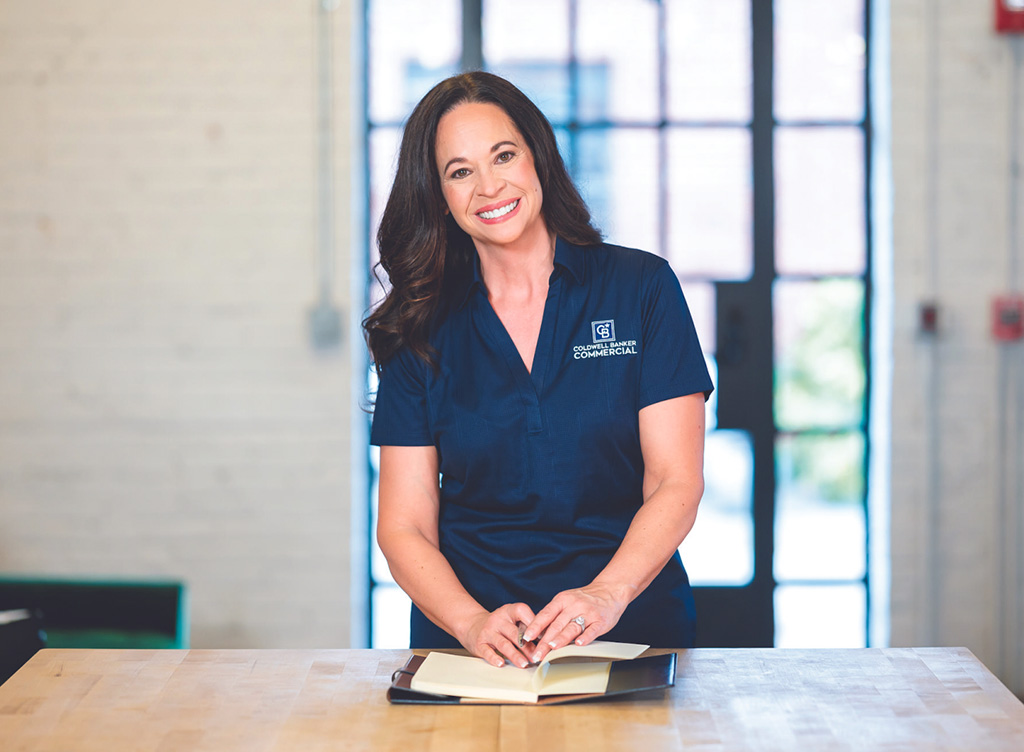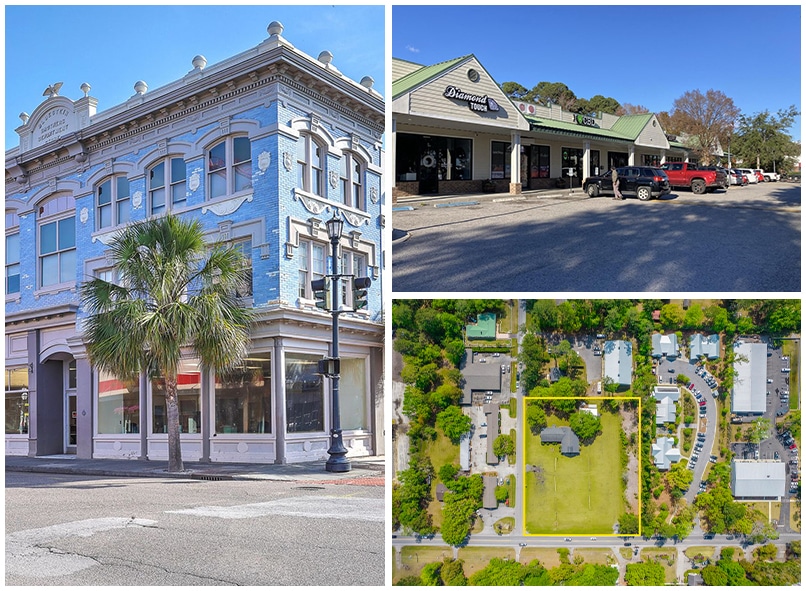

With an average of 230 days of sunshine each year, a low cost of living, and endless recreational activities, Charleston is a joy to call home. As the second most popular place to live in the U.S., metro Charleston is booming, not only with new residents but with new construction and property investment opportunities too. But with the Tri-County's rapid rate of growth comes increased real estate demand and complexity. That's especially true for commercial real estate transactions. According to CoStar, near-zero vacancy rates and short supply have forced rents and sales to reach record highs. At the same time, online medical and grocery purchases, along with last-mile delivery needs, have driven a new desire for industrial space.
It's safe to say that there is a lot of opportunity on the table for commercial real estate sellers and investors in South Carolina. But capitalizing on that opportunity without the proper market knowledge, relationships, or risk analysis can actually be counterproductive to your goals. That's where Coldwell Banker Commercial Atlantic's commercial real estate brokers in Charleston, SC, come into play.
As experts in the commercial real estate industry for more than 37 years, our brokerage provides the highest level of service to clients in today's rapid, constantly-changing business climate.
Service Areas
The Coldwell Banker Commercial Atlantic Difference
At Coldwell Banker Commercial, we pride ourselves on having local power and a global presence. Our clients entrust their complex and lucrative commercial real estate deals to us because they understand the value of working with brokers who are familiar faces within the community. On any given day, you could be standing next to one of our brokers at a grocery store or local restaurant. As your friends and neighbors, we're proud to call the Lowcountry home. Though we have local roots, our resources and expertise are backed by a global network. That power gives our commercial real estate clients peace of mind, knowing they have access to a dynamic and diversified brokerage of highly-trained and educated agents.

From general commercial leasing services and property management to investment guidance and new property site selection, our team works tirelessly to exceed your expectations and meet your goals. Whether you're looking to buy, sell, lease, or develop, our commercial real estate brokerage in St. Stephen, SC provides the up-to-date advice and time-tested market knowledge needed to facilitate any commercial real estate transaction, large or small.
Some of the commercial real estate specialties we focus on in South Carolina include:
- General Brokerage and Commercial Real Estate Leasing Services
- Commercial Investment Analysis
- Commercial Property Management
- Commercial Property Development
- Commercial Construction and Project Management
- Disposition, Acquisition, and Work-Out Properties
At the end of the day, our commercial brokers and agents aren't satisfied until you're a happy customer. That's why every service and decision we recommend is made with your best interests in mind.

Why Hire a Commercial Real Estate Broker in St. Stephen, SC?
Perhaps you're in a situation where you need more space for a growing business. Maybe, instead, you want to capitalize on low-interest rates and buy a commercial real estate investment property to bolster your portfolio. Whatever your needs may be, whether as an investor or a small business owner, your goals are probably the same: lock in the best value and negotiate optimal terms for leasing, buying, or selling. When it's all said and done, you want to minimize expenses and maximize your ROI.
Unfortunately, commercial real estate is complex by nature. Given today's ever-changing real estate landscape and the challenges of our economy, working with a commercial real estate agent is the savviest way to save money and lessen the likelihood of making a poor investment.
That's because the very best commercial real estate brokers, like those at Coldwell Banker Commercial Atlantic, do more than putting "for sale" signs in yards and in newspapers. They have the tools and training to source and present research apropos to your commercial real estate purchase or sale. They also have the ability to provide transaction and advisory services to ensure every aspect of your CRE process goes smoothly and efficiently. But we're getting ahead of ourselves. Here are a few of the biggest reasons to work with a commercial real estate broker in South Carolina.

Save Money
Unsurprisingly, money is one of the biggest reasons why people steer clear of CRE brokers - for the cost savings. Yet, just about every commercial real estate transaction is managed by a commercial real estate brokerage. Why might that be? The answer is that smart business owners, executives, and investors know that the most lucrative cost savings stem from good planning, time management, and successful negotiations. Only an experienced commercial real estate broker can provide you with those features while also properly structuring your commercial real estate deal.

Manage Your Time More Effectively
Commercial real estate investors and business owners often have jam-packed schedules with little time to spare for anything other than day-to-day operations. If that sounds familiar, you know how crucial time management is for commercial real estate. By working with a seasoned broker, you can uphold your daily responsibilities while they provide guidance and manage the minutia of your CRE dealings.

Access to Specialized Systems and Data
Reputable commercial real estate brokerages provide access to a bevy of information that is pertinent to your commercial real estate goals. We're talking vacancy and absorption rates, the latest sales price data, comparative labor and tax costs, and more. Your broker will help break down this information so that you can make the most informed decisions possible. Brokerages like Coldwell Banker Commercial Atlantic also have systems and software to facilitate complex real estate processes while eliminating unneeded costs. The combination of accumulated data and exclusive systems results in a more cost-effective, efficient way to meet your real estate requirements on terms that are beneficial to you.

Years of Success and Experience
As is the case with most things in life, practice and repetition are essential in honing skills and achieving business success. The truth is that no amount of money or "how to" articles can suffice for decades of real-world, hands-on experience. Sure, you can find a litany of commercial real estate info online. But those articles won't teach you about navigating the nuances of structuring advantageous purchase terms or completing complicated due diligence tasks. A successful commercial real estate broker in St. Stephen, SC, will have no problem executing these often-confusing processes because they've done it dozens and dozens of times before. This priceless experience is your best resource for successful commercial real estate initiatives.

Service Integration
One of the biggest advantages of working with a commercial real estate brokerage is their ability to provide necessary services that are relevant to your real estate needs. As a Coldwell Banker Commercial affiliate, we are part of a network that allows us access to accounting, legal, and other services needed on your real estate journey. Finding and vetting these services can be very costly and time-consuming, which is unneeded stress that we're happy to remove from your plate.

Purposeful and Engaging Marketing
For any project to be successful, a strategic marketing plan must be implemented to achieve the desired results for our clients. The methods of exposing and promoting a property must be creative, innovative, and unique to your property. At Coldwell Banker Commercial Atlantic, we utilize the most effective methods that make sense for your property in South Carolina, including:
- Print Materials
- Digital Marketing
- Design Renderings
- Photography
- Weekly and Monthly Advertising
- Affiliation Marketing
- Signage
- More

Negotiating Acumen
If you're reading this page, chances are you're successful to some degree and have entered negotiations a time or two in your professional life. While that's nothing to sneeze at, the art of negotiating in the commercial real estate industry is a skill that must be honed over years of transactions. In the world of CRE, transaction negotiations are often time-consuming and stressful - two things you don't need in your life. Your commercial real estate broker will use their experience to relieve you of that stress so that you can focus on growing your business or serving tenants.

Knowledge of Local Markets
One of the most valuable reasons for working with a commercial real estate brokerage is that staff have a deep understanding of South Carolina's real estate market. In the Lowcountry, trends and market conditions are constantly changing. Opportunities are lost and found daily.
With this market knowledge, your commercial real estate broker in St. Stephen, SC, can provide an easy-to-understand analysis of various commercial properties within your budget. They'll know what relevant properties are leased or sold for and how much. Savvy commercial real estate brokers are also always informed on local demographics and market indicators that impact your commercial real estate goals. For instance, with COVID becoming a more accepted part of our lives, leasing, and sales in retail have taken off, especially for Class A and Class B centers.
Brief Overview A Brief Overview of Our Specialties
At Coldwell Banker Commercial Atlantic, we specialize in several commercial real estate services. Though each service is comprehensive and will differ for each client, here is a brief overview to help you understand the scope of our abilities.

General Brokerage and Leasing Services
We're proud to say that our commercial real estate brokers in St. Stephen, SC, are equipped with all the necessary skills and traits to make your life easier. From transactional needs to marketing strategies, our experience and market knowledge is second to none, allowing us to ensure your success in today's market.

Property Management
In an ever-changing commercial real estate industry, our approach to property management is constantly evolving. Our team has extensive experience in commercial real estate management and recognizes its importance as a foundation for long-term value and wealth. As such, Coldwell Banker Commercial Atlantic provides tailor-made property management packages that meet your specific assets needs and objectives.

Project and Construction Management
Whether you're entering a build-to-suite or remodeling a commercial property, our associates are ready to represent you with facility planning, design, construction, zoning restrictions, and so much more. If you're looking for a brokerage that can guide you through every step of the construction process with your goals and budget at heart, look no further than Coldwell Banker Commercial Atlantic.

Investment Analysis
Coldwell Banker Commercial Atlantic provides comprehensive investment analytics to better evaluate potential investments and increase return on those investments. Additionally, our team can facilitate single or multiple-location transactions and also find alternative financing recommendations if needed.

Property Development
From selecting the perfect building site for your property to overseeing its initial construction, our associates provide experience and expertise when you need it most, covering every step and service of property development. If needed, our team can assemble the right professionals to ensure your property is developed to your unique specifications and applicable regulatory standards.

Acquisition, Disposition, and Work-Out Properties
Our commercial real estate brokerage represents clients in both the disposition and acquisition of property and works directly with you to determine your needs. We then strive to improve efficiency and reduce costs. We also assist financial institutions and government agencies in the management and disposition of ‘troubled properties.' Our firm incorporates its spectrum of services to efficiently turn these properties around and improve their value for ultimate disposition.

Time-Tested Tips for Commercial Real Estate Investing
If you're just getting started in commercial real estate investing, you're probably searching for reliable advice and best practices to follow. While hands-on experience and guidance from a commercial real estate broker are always best, a little advice never hurts. After all, there's a wide world of opportunity out there. As you begin to build a more robust portfolio, keep these tips and tricks in mind.

Take Your Time
Commercial real estate deals can take a lot longer than traditional single-family transactions. That's true throughout the entire process, from purchase, to renovation, to selling. That's not a bad thing - after all, having impatience is a good way to rush into a poor decision. Instead of a means to quick cash, think of commercial real estate deals as a large bonus or as a vehicle for retirement.

Keep an Open Mind
Many commercial real estate investors jump right into the multi-family property space. However, it's essential to keep other types of properties in mind, such as mobile homes, office buildings, land, and even mobile home parks. Forget about your comfort zone. Instead, weigh your options and choose a niche that helps you meet your goals.

Search for Great Financing Before Making Offers
Commercial loans are quite different than their residential counterparts. In some ways, they're better. Though down payments are typically higher, meaning you'll put more down, there's often no personal liability involved. Plus, commercial loans can be more forgiving when borrowing money for down payments. The bottom line is to search for the best lenders before making an offer. If you're having trouble, ask your commercial real estate broker for assistance, as they often have connections and partnerships with relevant entities.

Learn the Appropriate Formulas
If you're used to buying residential homes, you're probably familiar with some formulas, such as buying 75% of after-repaired value minus the estimated cost of repairs. Depending on the type of commercial property you're buying or selling, you'll have different formulas to learn. Two examples are Cap Rates and Net Operating Income. Learning these formulas can be very beneficial when making an offer.

Lean On Your Commercial Real Estate Agent in St. Stephen, SC
If you find yourself discouraged with the commercial real estate game, remember that the team at your commercial real estate brokerage is there to make your life easier. At Coldwell Banker Commercial Atlantic, we have a powerful brokerage with a team of over 20 highly skilled and educated agents. Our job is to serve you, whether you're a new investor looking for your first deal or an experienced property owner looking for 1031 tax investment advice.

REQUEST CONSULTATION
Latest News in St. Stephen, SC
Berkeley County Economic Development Hosting Public Meeting on Brownfield Grant
berkeleycountysc.govhttps://berkeleycountysc.gov/berkeley-county-economic-development-hosting-public-meeting-on-brownfield-grant/
This informational meeting will provide more details on the $500,000 EPA Brownfield Assessment Grant Berkeley County Council accepted in September 2022. Economic Development officials and representatives with Terracon Consulting Engineers and Scientists, SC Department of Health and Environmental Control (SCDHEC), and the Environmental Protection Agency (EPA) will be on hand to answer questions.This grant is part of the U.S. Environmental Protection Agency’s Brownfield Assessment Grant Program and will help fund the first steps i...
This informational meeting will provide more details on the $500,000 EPA Brownfield Assessment Grant Berkeley County Council accepted in September 2022. Economic Development officials and representatives with Terracon Consulting Engineers and Scientists, SC Department of Health and Environmental Control (SCDHEC), and the Environmental Protection Agency (EPA) will be on hand to answer questions.
This grant is part of the U.S. Environmental Protection Agency’s Brownfield Assessment Grant Program and will help fund the first steps in a large-scale revitalization initiative to improve quality of life opportunities in the St. Stephen/Russellville area. Specifically, the grant will allow the Town of St. Stephen, Berkeley County Economic Development, and the EPA to work together to determine brownfield sites in the St. Stephen area that could be redeveloped to provide more job opportunities and other quality of life resources for the community.
Brownfield sites are properties that are or may be contaminated with hazardous substances, pollutants, petroleum, or other contaminants that pose a barrier to productive reuse. Such sites are often are in struggling neighborhoods and areas with blight, deteriorated infrastructure, or other challenges. A brownfield site may include public or private properties, green spaces, or parks in need of preservation. The grant has already identified two such sites: the former St. Stephen High School, which closed in 1996, and the area’s former Lumber Mill, which operated as a steam-powered lumber mill from the 1930s to mid-1960s and closed around 1970.
Members of the public are encouraged to submit information HERE if they own a property or know of a property in the St. Stephen area that could be considered for an assessment as a brownfield site. Landowners may be asked to participate in an assessment by providing information on the site’s history.
This EPA program also provides funding for these assessments—which are critical for determining real estate values—and will help identify and/or alleviate any potential environmental concerns at a site.
This revitalization initiative, which will be conducted in multiple phases, will include community input and engagement throughout the entirety of the process. For more information on the EPA Brownfield Assessment Grant Program, go HERE.
###
-Prepared by the Berkeley County Public Information Office-
MONCKS CORNER, S.C. – (Tuesday, April 11, 2023) – Berkeley County has awarded approximately $1.2 million in Community Development Block Grants (CDBG) to nine different local nonprofits and municipalities. County Council approved the recommended funding allocations at its meeting on Monday, April 10, 2023. Watch the full meeting HERE.
Berkeley County opened an application period from February 17 to March 17 for interested organizations to apply for funding. In partnership with Civitas LLC, the County established a CDBG Advisory Committee to review applicants and determine eligible groups before making a recommendation to Council. The money stems from the U.S. Department of Housing and Urban Development (HUD) and will provide Berkeley County communities with resources to address unique community development needs. Funding has been awarded to the following local organizations for costs associated with public facilities and demolition:
*The approximately $1.28 million approved also includes $256,910 for administration and CDBG Program-related costs.
Through the CDBG program, the U.S. Department of Housing and Urban Development (HUD) approved $1,284,550 for Berkeley County to use to address community development needs. The County is also set to receive $552,117 in HOME funding from HUD for Program Year (PY) 2023, which begins July 1, 2023 and ends June 30, 2024. The above requests will be funded beginning July 1.
The CDBG Program provides annual grants on a formula basis to states, cities, and counties to develop viable urban communities by providing decent housing and a suitable living environment, and by expanding economic opportunities, principally for low- and moderate-income persons.
“We are excited to award this funding to help better serve a diverse set of support services throughout the County. Special thanks to the CDBG Advisory Committee and to each applicant for playing an important role in helping to meet the needs of our community.” -Berkeley County Supervisor Johnny Cribb
For more information on the CDBG Program, visit the County website or the U.S. Housing and Urban Development Program website.
Berkeley Co. accepts $500K grant for potential redevelopment in St. Stephen
Rey Llerenahttps://www.live5news.com/2022/09/15/berkeley-co-accepts-500k-grant-potential-redevelopment-st-stephen/
ST. STEPHEN, S.C. (WCSC) - Berkeley County says a new grant aims to possibly start redeveloping parts of St. Stephen, a rural town about 15 miles north of Moncks Corner.Berkeley County Council voted to accept a $500,000 Brownfields Assessment Grant from the Environmental Protection Agency on Monday.“It could be something like asbestos or lead-based paint, something in the soil,” Economic Development Director Kristen Lanier said. “Something that might be a risk for redevelopment, so this grant is going to allow...
ST. STEPHEN, S.C. (WCSC) - Berkeley County says a new grant aims to possibly start redeveloping parts of St. Stephen, a rural town about 15 miles north of Moncks Corner.
Berkeley County Council voted to accept a $500,000 Brownfields Assessment Grant from the Environmental Protection Agency on Monday.
“It could be something like asbestos or lead-based paint, something in the soil,” Economic Development Director Kristen Lanier said. “Something that might be a risk for redevelopment, so this grant is going to allow us to do an assessment to identify any potential risks for redevelopment.”
The grant targets two primary sites, the old St. Stephen High School, which closed in 1996, and an 85-acre area that used to be a lumber mill just off Highway 52, which closed around 1970. Up to 15 sites around the area could be looked at for revitalization as part of the grant.
“All I want is for something good to happen in St. Stephen, you know, because it seems like everything that comes to St. Stephen stays for a little while, and then, it’s gone,” St. Stephen resident Ann Judge said.
St. Stephen Mayor John Rivers said the grant will allow the town to start redeveloping and bring economic growth to the area. The county said the town could turn the old high school into a community center while the old lumber mill would be repurposed for some type of industrial use.
“The goal there, again with community input, would be that we start putting together a plan of revitalization for both those sites and others,” Lanier said.
Lanier also said they want to see if there is anything in these sites that might prevent that development.
However, some said they do not want to repurpose the old high school and keep it the way it is.
“My children came to school here too, so and I can remember all of my old high school teachers. I love it,” St. Stephen resident Julie Jenkins said.
The county said the money will be available starting Oct. 1 and will go on for the next four years. They also said the grant is the first step in a long-term process.
“This is that motion,” Lanier said. “This is that start of something, so we’re excited to see some movement in that area and to see what we can do and how we can leverage this.”
County officials said after those four years, they will have a plan developed for the sites.
The county will hold public meetings as part of the grant, but they have not announced when the meetings will be held.
Below is the full statement from St. Stephen Mayor John Rivers:
The town of St. Stephen is grateful that the EPA selected us to receive one of the 2022 Brownfield Program Grants for $500,000. We were the only municipality in Berkeley County to receive this. In countless other communities around the United States the EPA’s Brownfield program has had a proven track record of leveraging private sector investment, creating jobs and protecting the environment. St. Stephen will use this Brownfield Grant to spur our town with redevelopment and cleanup projects and bring sustained economic growth. We are thankful for the support of the Berkeley County Economic Development Office and their ability to work with myself, town council, and the town’s administration to write the grant proposal. We are ready to collaborate with the various committees that will be comprised of St. Stephen residents and business owners to help us continue to grow and revitalize our town. Receiving this prestigious award is a fantastic achievement for the Town of St. Stephen and I give credit to all involved in the initiative. We have been waiting for the results of the EPA Brownfield Grant Application for quite some time. “It has been well worth the wait.” This is the first of many blessings in store for our great town.
For more information about the Brownfields Assessment Grant, click here.
Copyright 2022 WCSC. All rights reserved.
St. Stephen thrives with new business growth
Marianna Lunsfordhttps://www.postandcourier.com/berkeley-independent/community-news/st-stephen-thrives-with-new-business-growth/article_07875b88-1b46-11ee-a98e-cbf99918c574.html
After moving to St. Stephen in 2021, Dan Kredensor was looking for a coffee shop and ice cream shop and found there to be neither for over 18 miles.In January of 2022 he took matters into his own hands and began creating a business plan to share his love of coffee, ice cream and entrepreneurship with the people of St. Stephen. On June 23, Kredensor saw his plan come to fruition with the ribbon cutting ceremony of his new coffee and ice cream shop, Lowcountry Coffee Co.Known as “Uncle Johnny’s Store,” Kredensor...
After moving to St. Stephen in 2021, Dan Kredensor was looking for a coffee shop and ice cream shop and found there to be neither for over 18 miles.
In January of 2022 he took matters into his own hands and began creating a business plan to share his love of coffee, ice cream and entrepreneurship with the people of St. Stephen. On June 23, Kredensor saw his plan come to fruition with the ribbon cutting ceremony of his new coffee and ice cream shop, Lowcountry Coffee Co.
Known as “Uncle Johnny’s Store,” Kredensor’s Lowcountry Coffee Co. resides in the oldest surviving commercial building on Main St. in St. Stephen.
“Uncle Johnny's store was quite active until his death in 1931,” said Kredensor. “His death along with the Depression started a chain of events where ownership changed hands many times. In my lifetime I recall it being a general store, a dress shop, a bank and an insurance company.”
Lowcountry Coffee Co. is just one of many businesses recently making a name for itself in St. Stephen. The town has seen the opening of many new businesses including a sandwich and burger joint called Freda’s, a local gun store called Lowcountry Munition, Old Town Feed and Supply and The Capital Grille and Seafood. St. Stephen will also soon see the opening of a traditional Trinidadian restaurant called Ma Gloria’s.
Along with the town’s new booming businesses, St. Stephen also holds the Catfish Festival in the Spring, the Community Festival in October and the Berkeley Showoffs Car Show in November. Additionally, the town holds a farmer’s market every Wednesday from 3-7 p.m. at Alice Park.
“St. Stephen is beginning to have a major turn around,” said Kredensor. “For me it all started in November of last year as I was able to meet with the town and propose a lease for the coffee shop and ice cream parlor. The goal after speaking with the mayor and some town council members was to create a space that could be the spark to begin to reinvigorate the St. Stephen Main Street Business District. We have also been working with Berkeley County Economic Development Office, the Berkeley County Supervisor's Office, Santee-Cooper Economic Development Office, and the Berkeley-Charleston-Dorchester Council of Governments (BCDCOG) Economic Development Office on ways that we can continue to attract and keep small businesses in St. Stephen.”
He said the goal for Lowcountry Coffee is to inspire more small businesses in a town that is ready for them.
“We know that growth is going to come slowly to St. Stephen," he said. "We want to be a spot where you can come and bring the family, meet a business partner and get a great cup of coffee or a delicious scoop of ice cream.”
“[The most rewarding part of running LowCountry Coffee Co] is seeing people smiling after they have the first sip of coffee or the first taste of ice cream because coffee and ice cream do have an uncanny ability to put smiles on just about everyone,” Kredensor added. “Listening to the stories and history of all our amazing customers is a blessing. Also giving people a safe space to meet for coffee or ice cream, whether it be a date, a celebration or a business meeting is wonderful to see every hour.”
Berkeley County Receives $500,000 Grant to Fund Revitalization in St. Stephen Area
berkeleycountysc.govhttps://berkeleycountysc.gov/berkeley-county-receives-500000-grant-to-fund-revitalization-in-st-stephen-area/
MONCKS CORNER, S.C. – (Thursday, September 15, 2022) – At its meeting on Monday, September 12, 2022, Berkeley County Council approved a $500,000 EPA Brownfields Assessment grant to help fund a large-scale revitalization initiative to greatly improve quality of life opportunities in the St. Stephen/Russellville area. Watch the full Council meeting HERE.This grant, part of the U.S. Env...
MONCKS CORNER, S.C. – (Thursday, September 15, 2022) – At its meeting on Monday, September 12, 2022, Berkeley County Council approved a $500,000 EPA Brownfields Assessment grant to help fund a large-scale revitalization initiative to greatly improve quality of life opportunities in the St. Stephen/Russellville area. Watch the full Council meeting HERE.
This grant, part of the U.S. Environmental Protection Agency’s Brownfields Community Wide Assessment Grant Program, will help fund environmental assessments on properties located within a certain designated Census Tract in the St. Stephen area. With the help of community and residential input, the Town of St. Stephen—together with the EPA and Berkeley County Economic Development—will conduct up to 15 site inventories of brownfield sites, in the St. Stephen area, that could be redeveloped to provide more job opportunities and other quality of life resources for the community.
The grant has already identified two such sites: the former St. Stephen High School, which closed in 1996, and the area’s former Lumber Mill, which operated as a steam-powered lumber mill from the 1930s to mid-1960s and closed around 1970. Another goal of this large-scale initiative will be to develop a complete revitalization plan unique to St. Stephen.
Public meetings and community engagement will be critical throughout this process. More information on public meetings will be forthcoming.
“County Council is committed to improving access to resources and employment opportunities for people throughout Berkeley County. This grant will not only help fund these initiatives, but also ensure the St. Stephen community is involved in the process. Berkeley County’s success is directly related to the success of its citizens; inviting the public to the table on critical decision-making efforts like this one are what makes us #OneBerkeley.” -Johnny Cribb, Berkeley County Supervisor
“The town of St. Stephen is grateful that the EPA selected us to receive one of the 2022 Brownfields Program Grants for $500,000. We were the only municipality in Berkeley County to receive this. In countless other communities around the United States, the EPA’s Brownfield Program has had a proven track record of leveraging private sector investment, creating jobs, and protecting the environment. St. Stephen will use this Brownfields Grant to spur our town with redevelopment and cleanup projects and bring sustained economic growth. We are thankful for the support of the Berkeley County Economic Development Office and their ability to work with myself, Town Council, and the Town’s administration to write the grant proposal. We are ready to collaborate with the various committees that will be comprised of St. Stephen residents and business owners to help us continue to grow and revitalize our town. It has been well worth the wait. This is the first of many blessings in store for our great town.” -John Rivers, St. Stephen Mayor
###
-Prepared by the Berkeley County Public Information Office-
Delhi University, St Stephen’s fight it out over admission interview in SC
Abraham Thomashttps://www.hindustantimes.com/cities/delhi-news/delhi-university-s-claim-of-payment-seats-at-st-stephen-s-college-disputed-in-supreme-court-appeal-101692380563218.html
The Delhi University (DU) on Friday told the Supreme Court that the seats for which the St Stephen’s College holds interviews are “virtually becoming payment seats”, attracting sharp rebuttal from the prestigious minority institution that said the contention was wrong and the university should not make such statements.The court was hearing DU’s appeal against an order passed by the Delhi high court on July 21, permitting the college to give 15% weightage for filling seats under the Christian students quota for ...
The Delhi University (DU) on Friday told the Supreme Court that the seats for which the St Stephen’s College holds interviews are “virtually becoming payment seats”, attracting sharp rebuttal from the prestigious minority institution that said the contention was wrong and the university should not make such statements.
The court was hearing DU’s appeal against an order passed by the Delhi high court on July 21, permitting the college to give 15% weightage for filling seats under the Christian students quota for the academic year 2023-24. The court directed the college to consider the Common University Entrance Test (CUET) scores only while admitting students on the unreserved seats.
Hindustan Times - your fastest source for breaking news! Read now.
Solicitor general Tushar Mehta appeared for the university and said, “I hope the college is not holding any interview. This 15% for interview is virtually becoming payment seats. This court knows about this practice.”
Mehta said that while there is no objection to the college reserving 50% seats for minorities, the seats should be filled up entirely on basis of merit decided by CUET scores. “Interview brings subjectivity. Even if I have more than 90% marks, someone with less marks gets admission,” he added.
Senior advocate A Mariarputham, appearing for the college, along with advocate Romy Chacko, objected to Mehta’s statement. “This is false. Such wrong statements need not be made. He is an officer of the court. He may argue on merits but not make such statements,” he said.
The solicitor general countered: “This is not a statement but my argument on merits.”
The college argued that in any case admissions for this year have ended on August 16, and interviews were conducted.
“This petition is infructuous as admissions closed on August 16, and classes for the new academic session have begun,” the senior counsel said.
The UGC, too, filed an appeal against the high court order and requested the court to take up both the appeals on Monday.
The bench of justices AS Bopanna and PS Narasimha agreed to the request and asked the two sides not to get “worked up” and reserve arguments for Monday.
The college approached the Delhi high court, challenging a December 8 order passed by the DU executive council that even for 50% minority quota seats, admissions should solely be done on the basis of CUET scores. The council said and no interview will be permitted. Following the council’s order, DU issued a notification on December 30. The college challenged both the order and the notification, saying they were unconstitutional.
In its interim order on July 21, the high court allowed the college to have 15% marks reserved for interview for minority candidates while general candidates had to be admitted on the basis of CUET scores.
The college claimed that over the years, it has been making admissions to undergraduate courses by earmarking 15% weightage for personal interaction or interview. Last year, with the introduction of CUET, the college had to admit students to its general category seats solely on CUET scores as the top court had in October 2022 refused to stay the HC order.
The college’s appeal which is still pending on this issue in the top court relied on the rights of minorities available under the Constitution to run and administer institutions.
Last year, too, when the controversy over CUET being applicable to minority quota seats arose, the high court on September 9, 2022 permitted St Stephen’s to proceed with its interview for Christian candidates.
Unveiling 'Elections 2024: The Big Picture', a fresh segment in HT's talk show 'The Interview with Kumkum Chadha', where leaders across the political spectrum discuss the upcoming general elections. Watch now!
Disclaimer:

 843-744-9877
843-744-9877